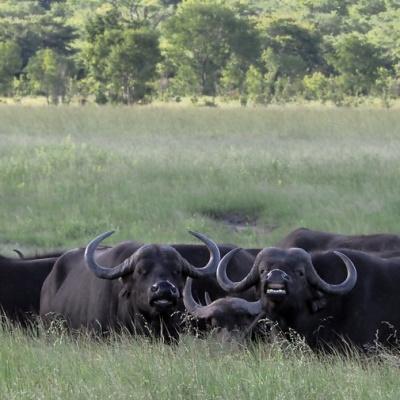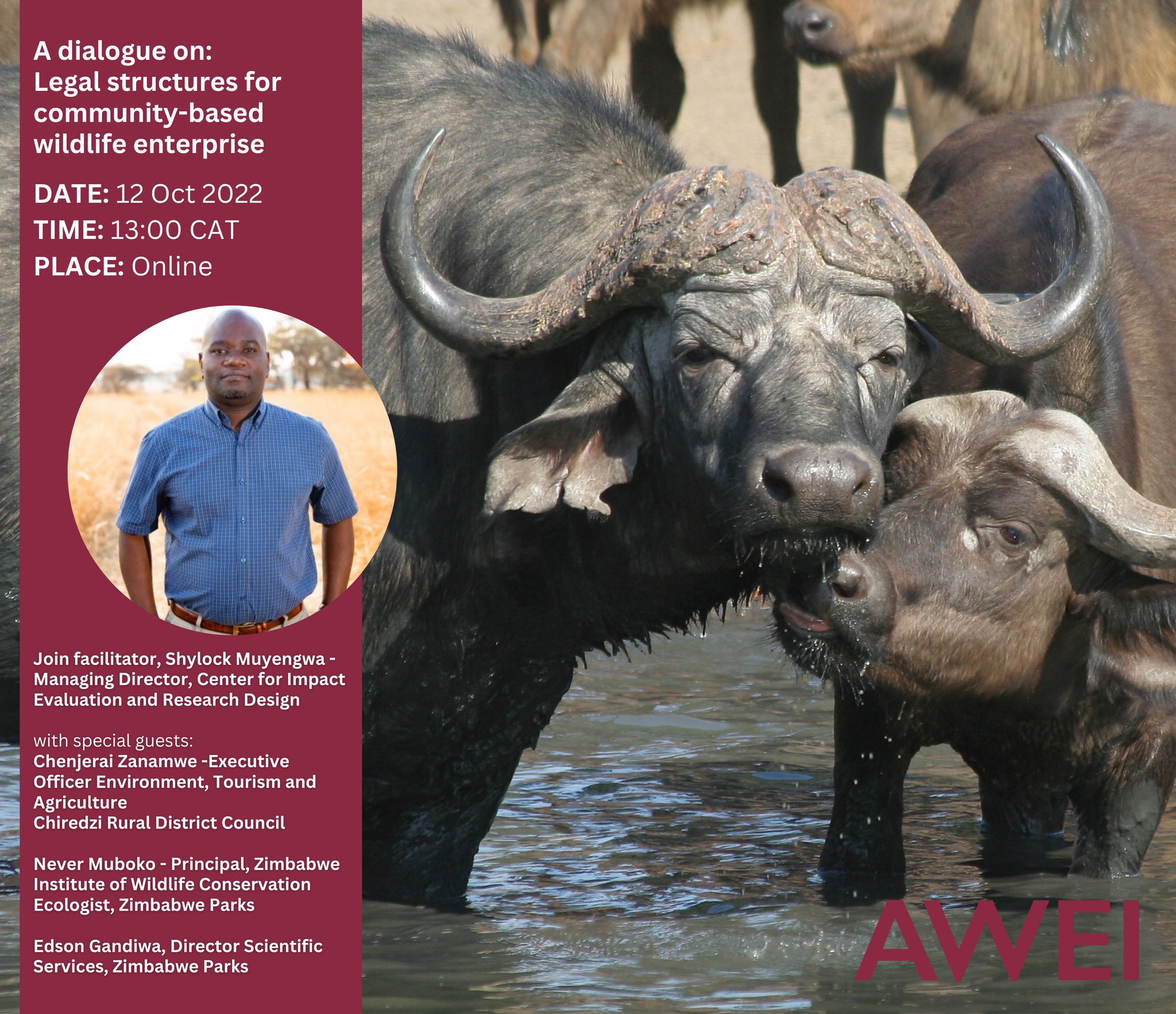
Legal structures for community-based wildlife enterprise
Zimbabwe
This is the third in a series of AWEI Dialogues on
What’s next for Zimbabwe’s wildlife economy?
In June 2019, the Government of Zimbabwe, along with the African Union and the United Nations Environment Programme, hosted Africa’s Wildlife Economy Summit at Victoria Falls. The Summit Report noted that it had “aimed at advancing political and community leadership, private sector know-how and financial resources for a new vision of pan-African conservation that delivers sustainable economic benefits to national governments and local communities.”
Three years on, what is the vision for Zimbabwe’s wildlife economy? How will key stakeholders – public, private, and community – be empowered and engaged? How will the wildlife economy deliver sustainable economic benefits and contribute to the country`s Gross Domestic Product?
In support of this process, the African Wildlife Economy Institute (AWEI) in partnership with Oppenheimer Generations Research and Conservation (OGRC) is holding a series of Dialogues starting in May 2022 to explore opportunities for turning Zimbabwe’s wildlife economy into a key sector for sustainable and inclusive economic growth.
A dialogue on:
Legal structures for community-based wildlife enterprise
At the 2019 Africa’s Wildlife Economy Summit, a dominant issue was the need to “promote proper governance through elaborate transparent and accountable processes, systems and institutions.”
In Zimbabwe, what can be done to enhance transparency, accountability, and good governance in the wildlife sector, particularly at the community level?
One suggestion at the Summit was that “government’s role… is to lead the process in garnering private sector investment to improve and restore marginalized lands for sustained wildlife economy.”
What type of legal structures can be established to attract investments and develop markets for community-owned and managed wildlife enterprises?

Shylock Muyengwa (Facilitator)
Managing Director, Center for Impact Evaluation and Research Design
LinkedIn
Chenjerai Zanamwe
Executive Officer Environment, Tourism and Agriculture
Chiredzi Rural District Council
LinkedIn
Never Muboko
Principal, Zimbabwe Institute of Wildlife Conservation
Ecologist, Zimbabwe Parks
Edson Gandiwa
Director Scientific Services, Zimbabwe Parks
LinkedIn
Get updates by email
Through impactful research, stakeholder engagement, and professional development, AWEI is supporting the wildlife economy across Africa. Please subscribe for occasional updates on our work and forthcoming events.
Sign up for a quarterly dose of AWEI insights
In a complex and changing world, AWEI generates strategic ideas, conducts independent analysis on wildlife economies, and collaborates with global scholar-practitioners to provide training and expertise for biodiversity conservation, climate resilience, and inclusive economic opportunities in Africa.
